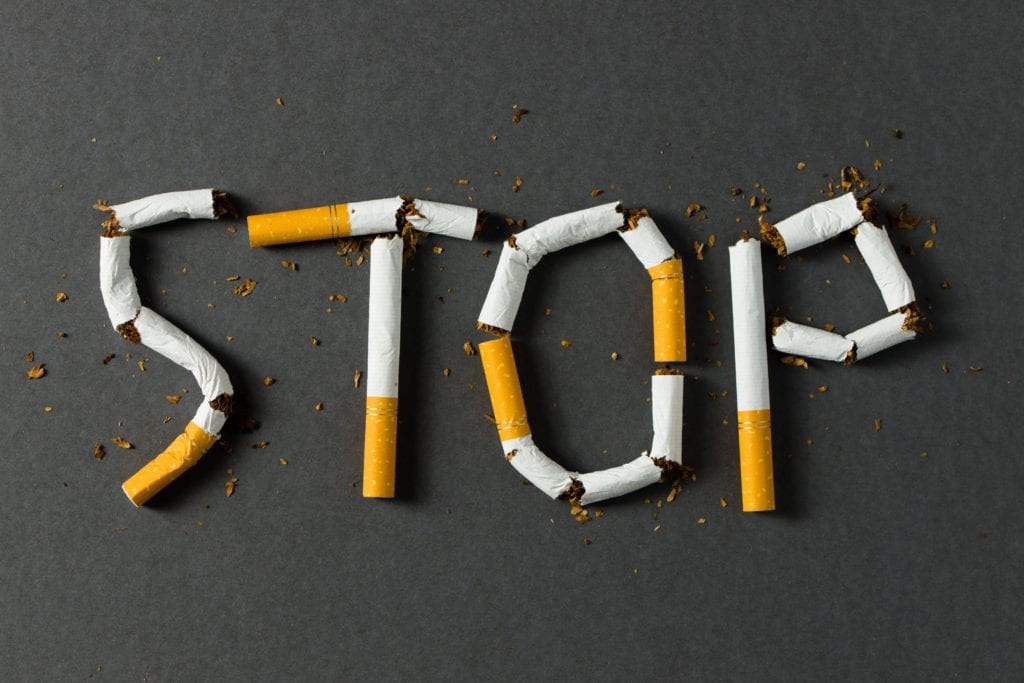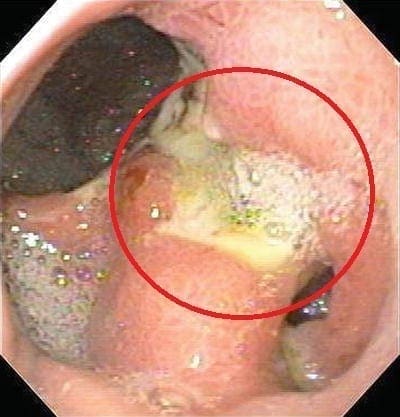 Smoking and gastric bypass are a bad combination. Beyond the general health risks of smoking, gastric bypass patients have the added risk of developing a marginal ulcer. A marginal ulcer, also called an anastomotic ulcer, occurs at the connection (or “margin”) between the newly-created gastric pouch and the small intestine. This connection has reduced perfusion after surgery, and the microvascular disease that can occur with smoking often leads to the development of this potentially serious complication.
Smoking and gastric bypass are a bad combination. Beyond the general health risks of smoking, gastric bypass patients have the added risk of developing a marginal ulcer. A marginal ulcer, also called an anastomotic ulcer, occurs at the connection (or “margin”) between the newly-created gastric pouch and the small intestine. This connection has reduced perfusion after surgery, and the microvascular disease that can occur with smoking often leads to the development of this potentially serious complication.
Marginal ulcers usually present with pain in the upper abdominal region, which can occur after eating or can be constant. Marginal ulcers can mimic the symptoms of gallbladder disease, so often times an ultrasound will be done first to rule this out. Typically an endoscopy is then done to look at this connection and see if there is indeed an ulcer.
While there are some medical and endoscopic options for treating marginal ulcers, many do not respond to treatment. When they don’t resolve medically, it can require higher-risk revisional surgery to excise the ulcer and make a new pouch and connection. If smoking continues, another ulcer could occur in the new connection. Also sometimes, if left untreated for a long period of time, the ulcer can penetrate all the way through the wall of the GI tract, causing leakage of gastric contents into the abdominal cavity.
 -Due to the risk of marginal ulcers in smokers after gastric bypass, we require patients to stop smoking (and/or all nicotine products) prior to scheduling surgery. Smokers will be tested for nicotine prior to scheduling their procedure, and again at the surgical consent visit.
-Due to the risk of marginal ulcers in smokers after gastric bypass, we require patients to stop smoking (and/or all nicotine products) prior to scheduling surgery. Smokers will be tested for nicotine prior to scheduling their procedure, and again at the surgical consent visit.
-If either of these tests are positive for nicotine, the procedure will need to be delayed indefinitely until our team can be sure that smoking cessation has been successful.
-It’s important to note that nicotine tests can be positive in non-smokers who are exposed to a significant amount of second-hand smoke.
If you are a smoker and you are interested in gastric bypass, we recommend consulting with your primary care physician for smoking cessation options. It’s important to let them know that medications like Chantix are ok, but nicotine-based products such as patches and/or gum are not.
In conclusion, smoking carries significant risks for gastric bypass patients. and it is imperative to stop all smoking (and any other form of nicotine use) and not to ever resume again. Failing to do so can lead to serious long-term consequences!

